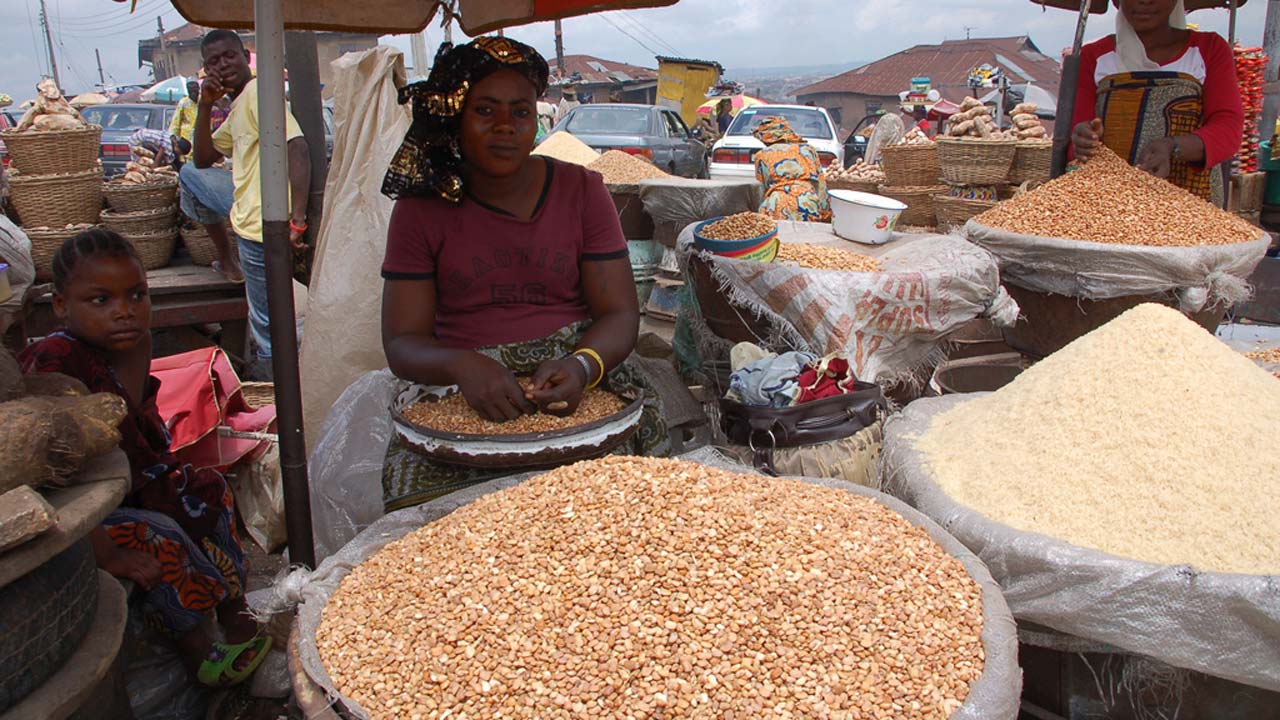
Fifteen months after President Bola Tinubu declared a state of emergency on agriculture, requiring the cultivation of 500,000 hectares of farmland, the World Bank has listed Nigeria among the countries experiencing the worst food inflation.
In the last 15 months, prices of staple food items such as rice, beans, yam, garri, sorghum, and maize, as well as cooking oil, have doubled, and more Nigerians are slipping into extreme poverty.
Also, 15 months after the declaration, Nigerians have yet to know the locations of the 500,000 hectares of land, the portion that has been cultivated, the crops, the amount spent, and the value created by the project.
In announcing the new deal, the then Special Adviser to the President on Special Duties, Communication and Strategy, Dele Alake, who is now the Minister of Solid Minerals, said: “The President is not unmindful of the rising cost of food and how it affects the citizens. While availability is not a problem, affordability has been a major issue for many Nigerians in all parts of the country. This has led to a significant drop in demand thereby undermining the viability of the entire agriculture and value chain.”
In the intervening months, a bag of rice has risen from N45,000 to about N100,000 while some other food prices have equally increased by over 100 per cent in some cases.
The World Bank’s food security report for September 2024 ranked Nigeria as the fifth country most hard hit by food inflation and the third in Africa, coming behind Malawi and Liberia.
The report attributed the worsening food security condition to conflict in food-producing regions and environmental challenges caused by climate change but it was silent on deteriorating economic variables indices such as stagnation. It added that there was a 28 per cent increase in the number of food-insecure people in Nigeria between August 2023 and September 2024.
“On the other hand, 18 countries experienced worsening situations due to factors, including intensified conflict and climate-related shocks such as droughts. Notable examples include Ethiopia, Nigeria and Yemen, each witnessing an increase of more than one million people facing high levels of food insecurity from the previous year,” it stated.
The report found that extreme weather conditions have significantly increased food insecurity across West Africa, leading several countries in the region to declare states of emergency.
The report estimated that approximately 1.6 million hectares of land have been immersed by floods in Nigeria, including 342,650 hectares of cropland, impacting 685,770 vulnerable individuals.
In July this year, the National Bureau of Statistics (NBS) in its ‘Selected Food Prices Watch’ confirmed that the prices of beans, rice, yam, eggs and garri increased.
The bureau noted that while the prices increased year-on-year for some food items, there was a marginal drop month-on-month.
According to the report, the average price of one kilogramme of brown beans stood at N2,444.81 in July, which was a 262.98 per cent price increase on a year-on-year basis from N673.53 recorded in July 2023.
On a month-on-month basis, the average price rose by 6.63 per cent from N2,292.76 in June 2024.
It also said eggs medium size (12 pieces) recorded a significant price increase year-on-year to N2,170.17 in July 2024 from N1,006.64 in July of 2023 and N1,935.69 in June this year, and that on a month-on-month basis, the average price rose by 12.11 per cent from N1,935.69 in June 2024.
The NBS added that there was a notable increase in the price of one kilogramme of tomato by 203.57 per cent on a year-on-year basis, from N557.96 in July 2023 to N1,693.83 in July 2024.
However, on a month-on-month basis, the price decreased by 26.43 per cent from N2,302.26 in June 2024.
The report explained: “Furthermore, the average price of one-kilogramme garri white sold loose went up by 167.98 per cent on a year-on-year basis from N429.89 in July 2023 to N1,151.79 in July 2024, while there was an increase of 1.43 per cent on a month-on-month basis. Also, the average price of one kilogramme of yam tuber increased by 234.23 per cent on a year-on-year basis from N539.41 in July 2023 to N1,802.84 in July 2024. On a month-on-month basis, it decreased by 10.82 per cent from N2,021.55 in June 2024 to N1,802.84 in July 2024.”






